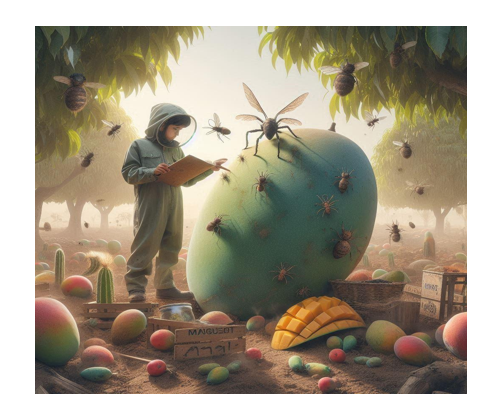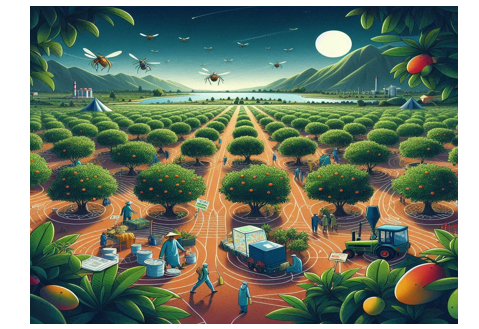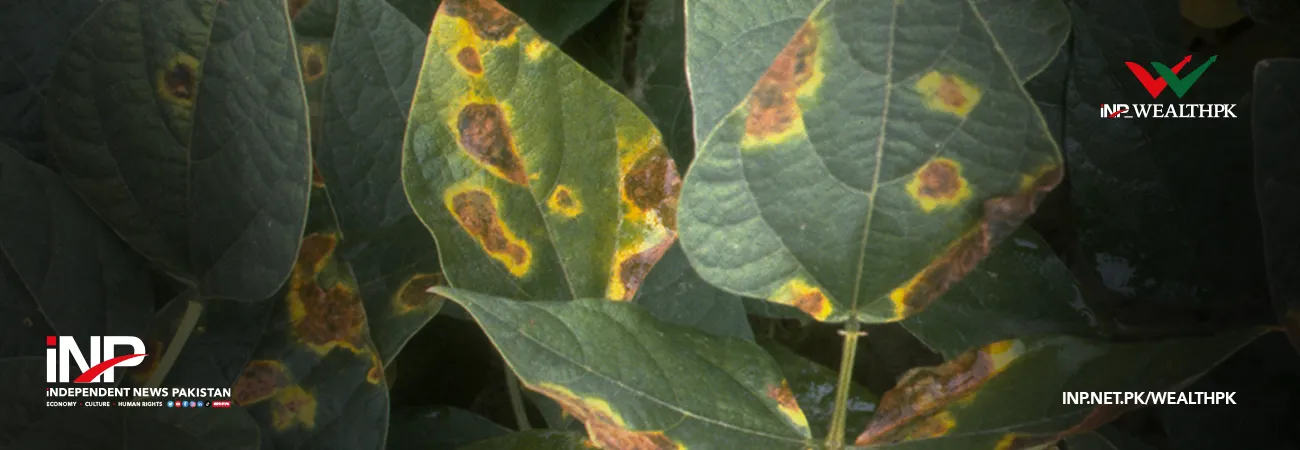INP-WealthPk
Muhammad Saleem

Mango growers have expressed their deep concern over increasing pest attacks, which led to a decline in crop production, reports WealthPK. Muhammad Aleem, a progressive farmer and owner of mango orchards, said orchard owners were finding it hard to battle climate change challenges with their limited knowledge. The current scenario demands modern strategies to effectively tackle pest-related issues. He said without controlling this menace, the owners would not be in a position to ensure a robust mango harvest. “Currently, we are trying to eliminate pests with chemicals. However, overuse of chemicals can create problems for the mango orchard owners in future, as the international quality standards are becoming stricter. This situation, combined with the poor management of pests, may disenchant international buyers. Protection of orchards and environment is crucial, and this task requires government support,” Aleem said.

Dr Ahmed of the University of Agriculture Faisalabad’s Institute of Horticulture Sciences, told WealthPK that Pakistan was earning a significant foreign exchange by exporting mangoes. However, he feared that mango exports might register a decline due to the diminishing number of trees caused by real estate development and pest attacks. “Attacks by mealybugs, fruit flies, and other insects were increasing due to climate change but unfortunately, we are not fully prepared to arrest this trend, even though mango orchard owners are raising alarm,” he added. He explained that these pests were badly damaging leaves, fruits, and stems. Resultantly, the owners were facing significant yield loss and poor fruit quality. Despite the availability of modern methods, our farmers are still relying on the traditional methods of pest control such as heavy use of insecticides, he added. Discussing the hazards of traditional chemical control methods, Dr Ahmed said overuse of chemical insecticides was causing multiple issues.
He pointed out that ineffective insecticides were strengthening pest resistance, which was not only hitting the yield but also putting a strain on the farmers’ finances. Scores of ineffective chemicals are being sold in the market and the farmers lack the capacity to check their efficacy, he said. “We have to adopt modern techniques for pest management, as the chemicals leave harmful residues on the fruit. We have to produce risk-free and healthy fruits for consumers,” Dr Ahmed suggested. Muhammad Aleem said everyone was aware of the issues mango orchard owners were facing. However, nothing practical was being done to save them from the losses. “We are employing every method to increase the yield by protecting our trees from pest attacks, diseases and climate change impacts. However, our efforts appear futile, as the production is declining.
The developed nations are promoting Integrated Pest Management (IPM) but our farmers are not fully aware of this facility,” he said. Explaining IPM, he said it enabled a farmer to easily monitor pest population, utilize natural predators like ladybugs and apply biopesticides derived from natural sources. Through the IPM, he said the farmers could maintain good orchard hygiene, which is crucial for sustainable agricultural practices. Dr Ahmed also acknowledged the importance of IPM and advocated for its adoption. He noted that now everything was being monitored in almost every segment of life. Effective monitoring, he explained, helped farmers take targeted decisions regarding pest management, flowering cycles, and tree nutrition. Regular pest checking and population monitoring enable farmers to control infestations before the outbreaks occur, he added.
Credit: INP-WealthPk













